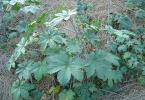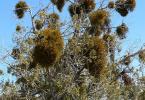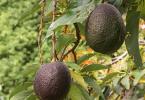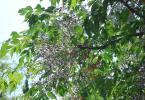Raisins and Grapes are Poisonous To Pets

Tulip Is Poisonous To Pets

Japanese Yew Is Poisonous To Pets

Yew Is Poisonous To Pets

Rubrum Lily Is Poisonous To Pets

Castor Beans are Poisonous To Pets

- 4 comments
- 8030 views
-

Buddhist Pine is Poisonous To Pets

American Mistletoe Is Poisonous To Pets

Avocado is Poisonous To Pets

Chinaberry Trees are Poisonous To Pets

Chinaberry Tree
Melia azedarach
Meliaceae
Modified nortriterpene (naturally occurring plant produced insecticide) tetranortriterpene, it is also suspected to contain saponin
Vomiting, diarrhea or constipation, loss of appetite, nausea, severe abdominal pain, bloody feces, loss of coordination, stupor, muscle fatigue, muscle rigidity, seizures finally ending in cardiac paralysis with death taking place after a period of about 24 hours.
The Chinaberry tree is widely distributed throughout the southern United States, with leaves that fall off and drop to the ground during the winter. The tree produces yellow, marble sized, poisonous fruits. It like many plants on the poisonous plants list manages to reside under a number of aliases to include the China tree, Bead Tree, Persian Lilac, White Cedar and Syringa.
Stop further ingestion of the plant, induce vomiting using 3% hydrogen peroxide solution and rinse the mouth thoroughly. Seek Emergency Veterinary Assistance. Treatment, though not a guarantee for survival will consist of gastrointestinal protectives and respiratory stimulants as well as Lentin (carbamylcholine chloride) .5-1cc for a 70lb dogharming Dieffenbachia
- 1 comment
- 18167 views
-





